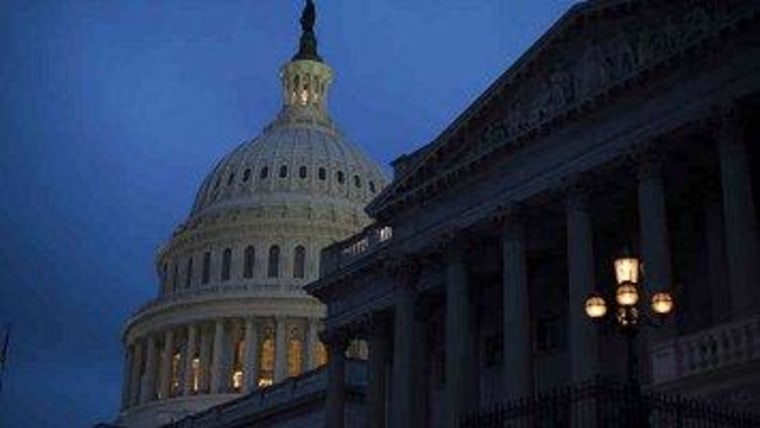National Journal's Ron Fournier seems to realize that when it comes to sequestration politics, President Obama "has reached farther toward compromise than House Republicans." But Fournier wants to blame the president anyway.
In any enterprise, the chief executive is ultimately accountable for success and failure. Sure, blame Congress -- castigate all 535 lawmakers, or the roughly half you hate. But there is only one president. Even if he's right on the merits, Obama may be on the wrong side of history.Fair or not, the president owns this mess.
I realize that many may find this line of thought appealing. Americans like to think of their president, no matter who's in office, as the most powerful person on the planet. The president is the Leader of the Free World and the Commander in Chief. He's the Top Dog, the Big Cheese, the one with whom the buck stops.
But let's not abandon our appreciation for Civics 101 for the sake of rhetorical convenience.
For Fournier, Obama is the president and "in any enterprise, the chief executive is ultimately accountable for success and failure." That would make sense if we were talking about a business or even a parliamentary system of government. But as I hope most observers realize, Obama is the "chief executive" of one branch. He's certainly not the "chief executive" of Congress, which remains a co-equal branch in the American system.
In other words, as tempting as it is to believe otherwise, a president cannot tell a Congress what to do. When part of Congress is led by a quantifiably-extreme party that hates the president with the heat of a thousand suns, a president has an especially difficult time telling a Congress what to do.
Which brings us back to the sequester nonsense.
Obama has played by the rules the establishment media has asked him to follow -- the president tried to stop congressional Republicans from crashing the economy on purpose; he accepted deep spending cuts; he adopted over $2.4 trillion in debt reduction even when economists said debt reduction shouldn't be at the top of the economic to-do list; he accepted far less tax revenue than his campaign platform sought; he put entitlement "reforms" on the table; he offered "grand bargains"; and with brutal sequestration cuts looming, he endorsed a 50-50 compromise that required concessions from both sides, all while leaving the door open to additional negotiations.
Short of simply ignoring public will and giving Republicans exactly what they've asked for, it's hard to think of literally anything the president hasn't already tried to avoid this and related messes, only to find rivals who are far more ideologically rigid, far more devoted to the whims of their extremist base; and far less open to compromise.
And yet, despite these demonstrable truths, there's Ron Fournier, insisting the president "owns this mess" anyway, even if Obama's "right on the merits." Why? Because he's the president.
If Congress did not exist, I might find this argument persuasive.
Postscript: Fournier's piece also endorses an op-ed from a congressional Republican who argued that government spending "has increased by $1 trillion every year since 2008." The Fournier op-ed presents the claim as fact, but it's important that the public realize how spectacularly wrong this is.
